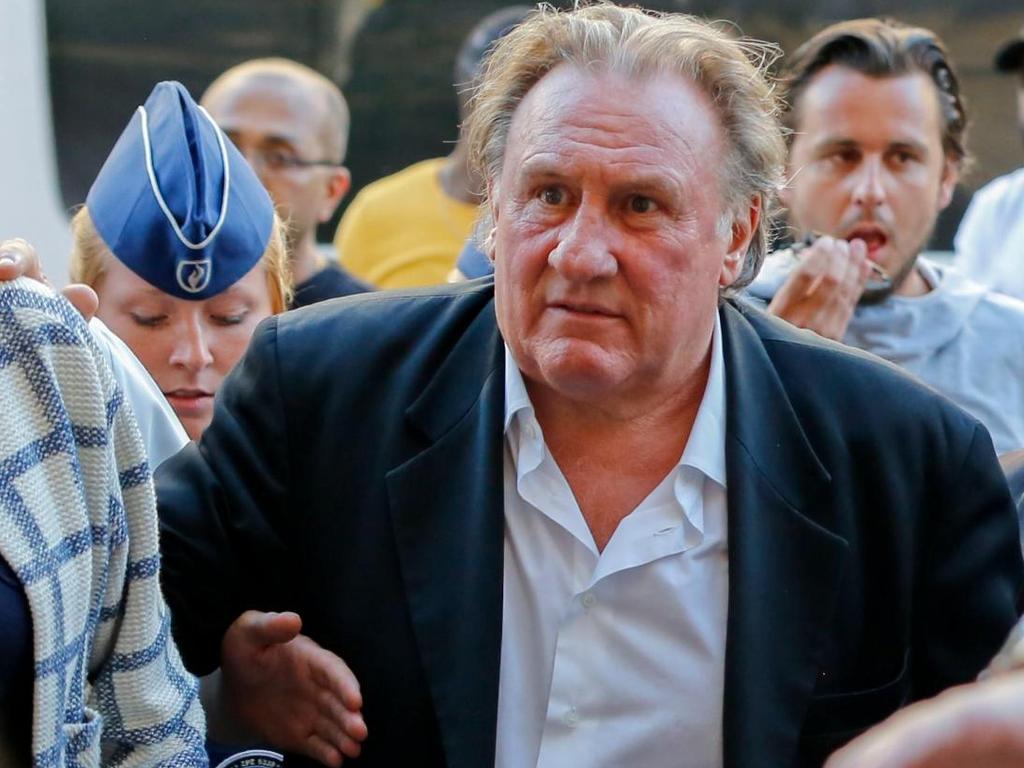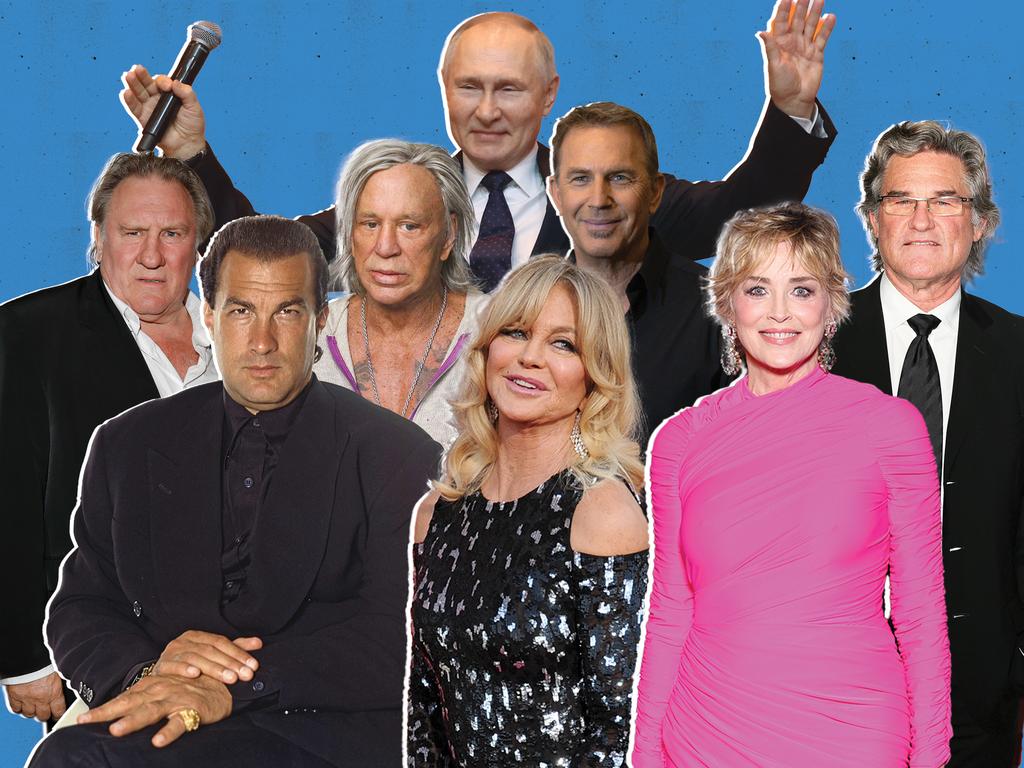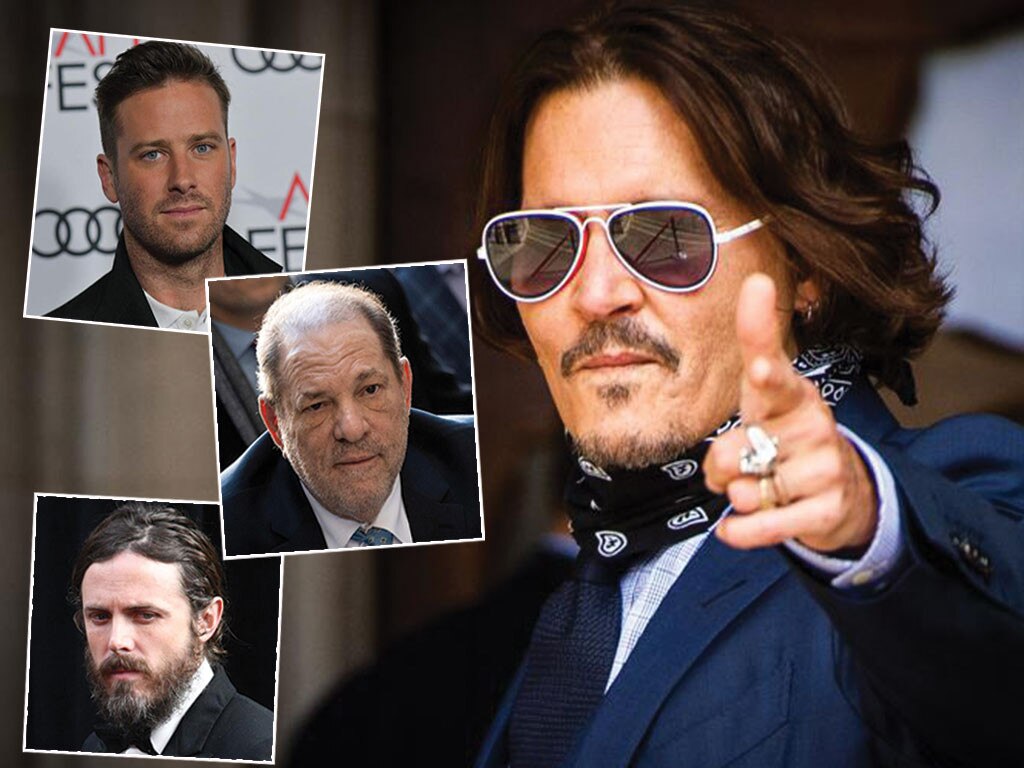Has Gerard Depardieu finally been cancelled?
The French actor’s reputation is in tatters as numerous women accuse him of sexual violence and a TV documentary exposes his misogyny in public

With more than 200 films to his name during a 50-year career, Gerard Depardieu has long been one of France’s most prolific actors - and also one of the most controversial, both because of the aura of sleaze that has long surrounded him and his strange cosying up to Vladimir Putin.
The 74-year-old star of Cyrano de Bergerac, Danton and The Last Metro may be facing the final curtain, however, after revelations about his lewd, misogynist behaviour during a trip to North Korea five years ago were made during an investigative documentary broadcast on French television last week.
The headlines in the French papers read like obituaries of the film legend: “A sacred monster that became a ‘monster of obscenity’: Gerard Depardieu, the fall of an icon in three acts,” commented Le Parisien.

Amid a slew of fresh allegations, Benedicte Martin, a writer who once shared a home with the actor, described in a television interview how he stripped off in front of her in the kitchen and threw his clothes at her face. When she threw them back, he reportedly said: “It’s interesting with you, there’s resistance.”
The actor knows his actions and words “are wrong”, but “is convinced that no one will dare to file a complaint against him”, Martin said, adding: “It’s nonetheless something that has been going on for 30 or 40 years, but no one had dared to attack Gerard Depardieu until now.”
Such claims are nothing new for the actor, who grew up in the 1950s in poverty, one of six siblings in a two-room flat in the central French town of Chateauroux, and had a turbulent adolescence during which he stole cigarettes and alcohol and served as a bodyguard for prostitutes. He also said in an interview with Time magazine decades ago that he carried out a number of rapes as a child - the first when he was just nine.
Yet such has been Depardieu’s exalted status that he has shaken off the allegations and continued to make films - even after he was indicted for rape in December 2020 following a complaint by Charlotte Arnould, an actress almost 50 years his junior. She detailed two incidents that she said had taken place in August 2018 while they were rehearsing in his home. He has denied the charge but remains under investigation.
In the meantime, the actor has also been pursuing a strange bromance with Putin. Leaving France in 2013 in protest at its high taxes he took Russian citizenship, receiving his passport personally from Putin, and backed his annexation of Crimea the following March. Relations cooled, however, after he denounced last year’s Russian invasion of Ukraine and what he called Putin’s “crazy, unacceptable excesses”.
Depardieu’s woes have multiplied in recent months, after 13 other women accused him of carrying out acts of sexual violence on the set of various films between 2004 and 2022 in an investigation published in April by Mediapart, an investigative website. He denied the claims.
The following month, the actress Adele Haenel announced she was leaving the film industry in protest at its “general complacency” towards sexual predators, among whom she counted Depardieu.

Bertrand de Labbey, the actor’s agent, has reportedly said that, for the past year, television channels and platforms had been “blocking projects” with his client. The revelations have also meant Jean-Louis Livi, a producer, has struggled to put together a planned film with Depardieu about the artist Henri Matisse.
What Le Parisien described as the third and final act in the drama was provided by the documentary, Gerard Depardieu: The Fall of the Ogre, which was seen by more than 1.5 million people when it was screened on France 2, one of the country’s main channels, on Thursday night.
It centred on footage shot by Yann Moix, a friend of Depardieu, who accompanied the actor when he toured North Korea in 2018, the year of its 70th anniversary, in a sign of his continued fascination with authoritarian regimes.
In it, the actor, apparently drunk, can be seen visiting an equestrian centre. As a ten-year-old girl rides around the enclosure, he can be heard calling women “sluts” and asserting that many derive sexual pleasure from being in the saddle. “Why don’t you get on a horse?” he asks his female interpreter. “It does you good, you know.”
In other scenes, Depardieu touches the interpreter’s bottom and boasts to her: “I’ve got a beam in my underpants.”
Even more damning is a claim in the programme by Helene Darras, an actress, that Depardieu had groped her in 2007, when she was working, aged 26, as an extra on his film Disco. Paris prosecutors confirmed on Wednesday that she had filed a sexual assault complaint against the actor in September.

Amid the outrage that followed the documentary, Fabien Onteniente, who directed Depardieu in both Disco and Turf, released in 2013, said he would no longer work with him. “It’s not in my values,” he told French radio. “It’s not possible to turn a blind eye to this type of unacceptable behaviour.”
Criticism has been directed not just at Depardieu but also at those in the film industry who for so long turned a blind eye to his behaviour, even as the belated arrival in France of the #MeToo movement encouraged women across society to flag up unacceptable male behaviour.
Among those denouncing the failure to speak out was Tristane Banon, an author who came to prominence in 2011 when she filed a legal complaint against Dominique Strauss-Kahn (who had just resigned as head of the International Monetary Fund after being accused of sexual assault) accusing him of having raped her nine years earlier. Banon’s case was dropped for lack of evidence and Strauss-Kahn settled another case for an undisclosed amount.
“How can a team film this kind of comments for so long without anyone saying: ‘Stop, this is intolerable?’” Banon demanded in a newspaper interview. “We can put Mr Depardieu on trial but I would also like us to put on trial the person holding the camera and those who were around him.”
In a brief open letter published in Le Figaro in October, Depardieu said: “Never, but never have I abused a woman,” adding: “Please forgive me for behaving like a child who wants to amuse the gallery. But I am neither a rapist nor a predator.”







To join the conversation, please log in. Don't have an account? Register
Join the conversation, you are commenting as Logout